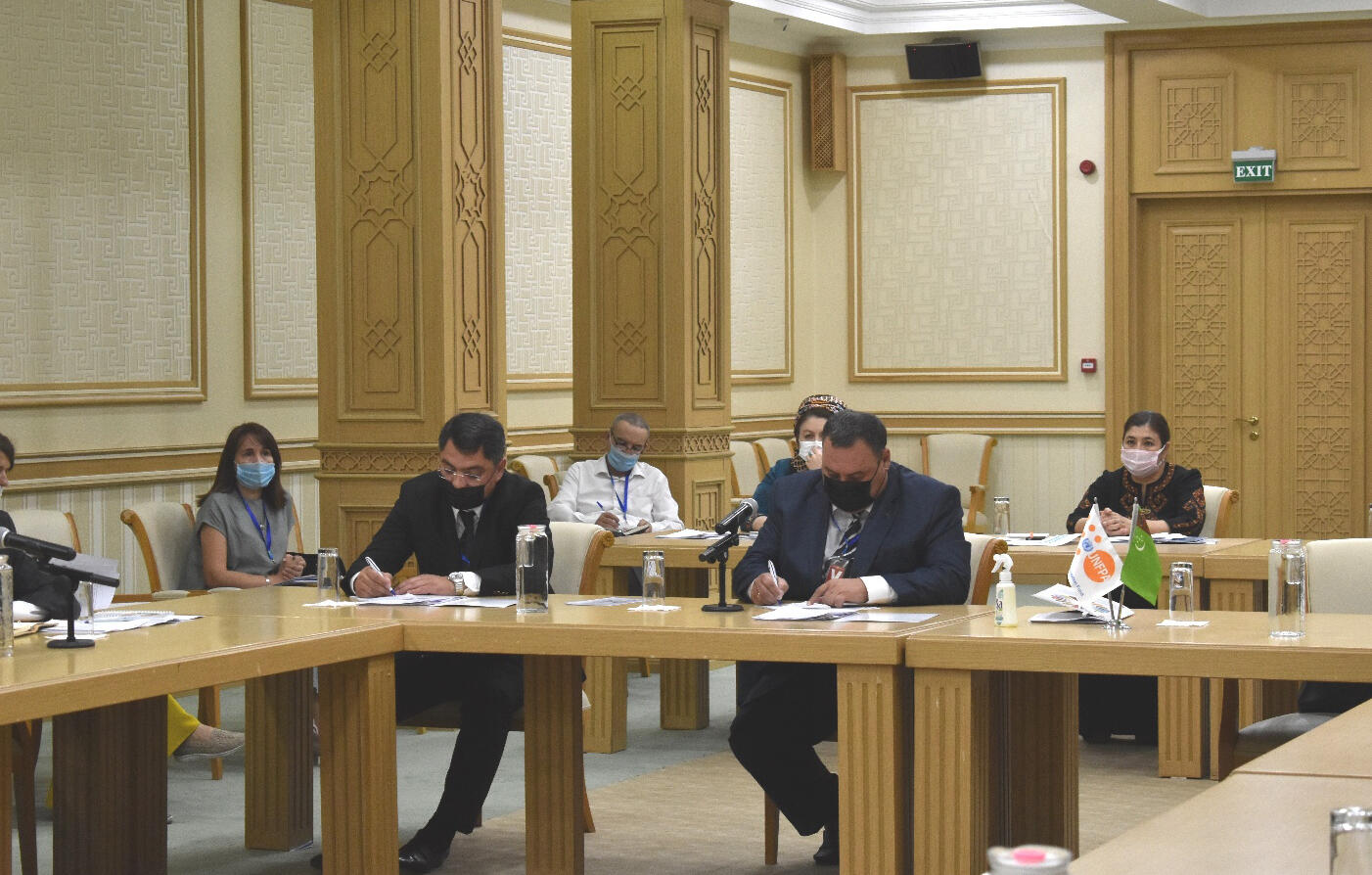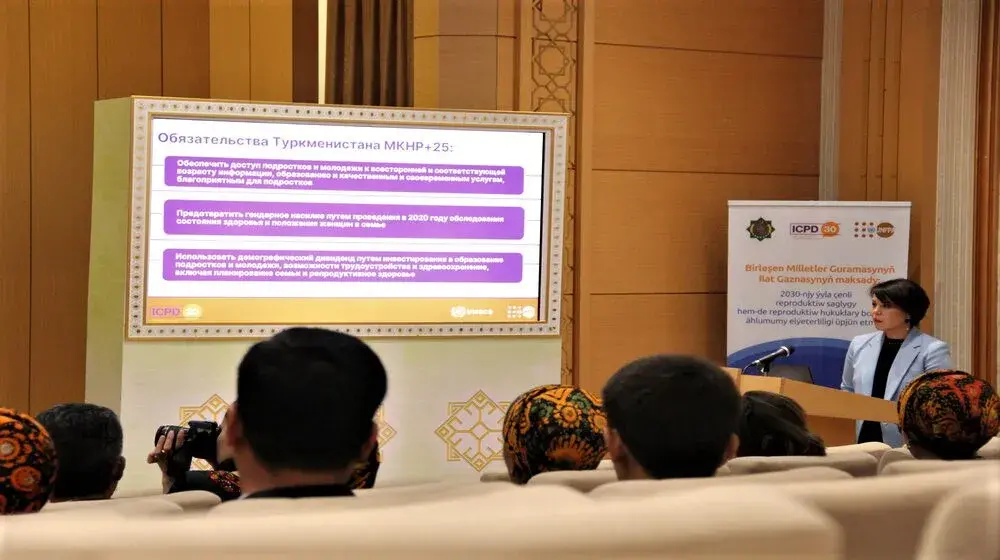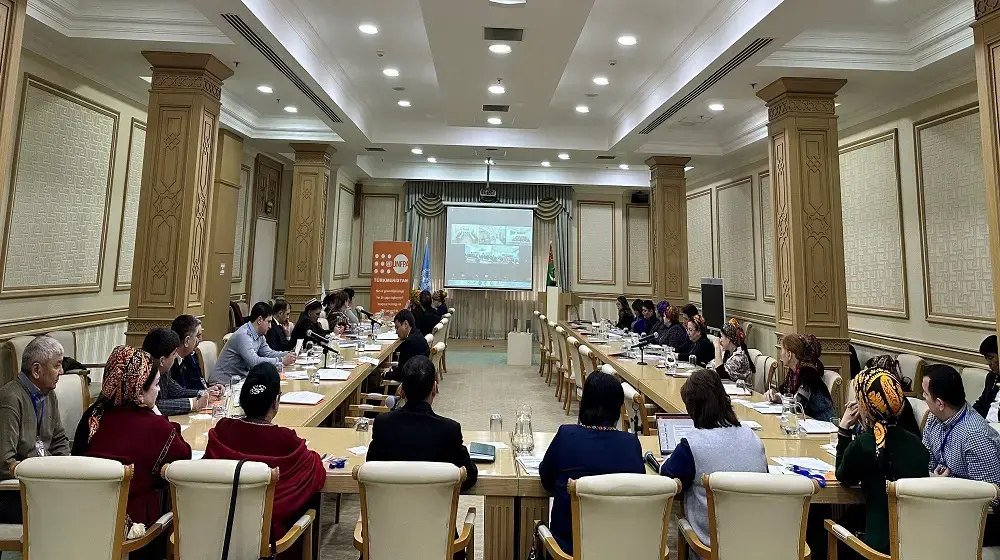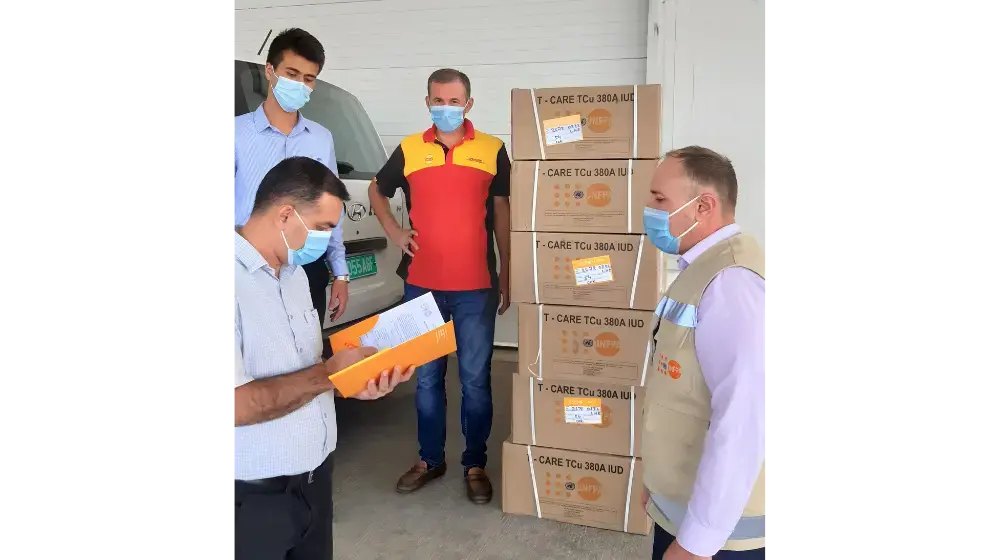Two new community-based specialized social services will be piloted in Ashgabat and Turkmenabat cities on social support for prevention of unintended pregnancy and prevention of the domestic violence. A series of online seminars to provide technical guidance that will ensure comprehensive piloting of the services was organized by UNFPA, the United Nations Population Fund, as part of the UN-Turkmenistan Joint Programme on social services, with the support from the UK Government.
The Eastern European Institute for Reproductive Health (EEIRH) of Romania facilitated the trainings for the social services with participation of the health, law enforcement sectors, public organizations, and a cohort of newly trained social workers.
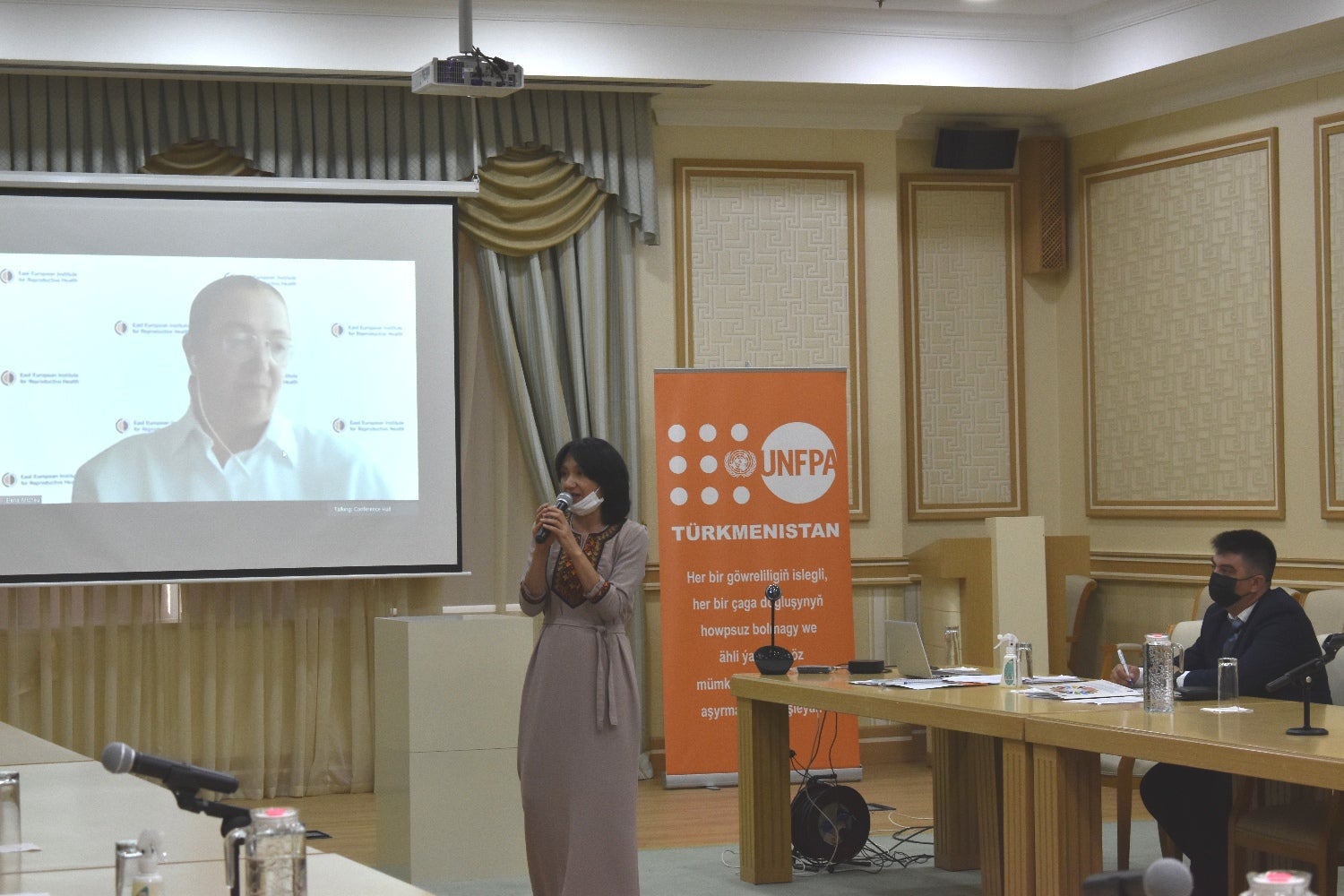
“It is important to achieve two ambitious goals, where every pregnancy is wanted and every woman and girl live a life free from violence. The aim of the training was to provide practical guidance to ensure that all new social services piloted in two new areas will be translated into the realization of these rights of women, girls, including those with disabilities,” said Elena Micheu, Programme coordinator at the East European Institute. “While the primary audience for these training sessions is social service providers, these three-day workshops and experience sharing are also designed as a valuable resource for all stakeholders - involved in the design, development, implementation or promotion of social services for prevention of gender-based violence or unintended pregnancies.”
The Government of Turkmenistan has prioritized improvement of social services in its mid-term national development programme and human rights action plans. One of the Joint Programme objectives aims at ensuring that all vulnerable populations will have access to quality community-based social services provided by professional social workers and qualified social service providers to address their individual needs and ensure their social inclusion.
In order to create a reformed and modernized national model of inclusive quality community-based social services that is aligned with the Sustainable Development Goals, UNFPA supported the review of legislative and regulatory framework for social services. The social contracting mechanism and institutional architecture to define multi-level system of social services have been developed within the framework of the Joint Programme.
The UNFPA’s partner institute will continue to provide their expert support to the public organizations “Beyik Eyyam” and “Keyik Okara”, which have started piloting these services in August. The specialized social services are piloted in coordination with the Ministry of Labour and Social Protection of Population, the Ministry of Health and Medical Industry and the Ministry of Internal Affairs.
The new package of social services will include crisis information, crisis counselling, hotline, safe accommodation, legal advice, psychosocial support and counselling, assistance towards economic independence for women subjected to domestic violence and women and girls with unintended pregnancy.
“The social support system reflects the vital component of the coordinated multi-sectoral response to gender-based violence, which brings several key actors, including the police, social services and healthcare, to provide rights-based support to the women and girls,” said Ms. Ayna Seyitlieva, UNFPA Head of Office. “UNFPA continues to support the Government of Turkmenistan in establishing a comprehensive system and mechanisms for women and adolescents to make informed choices and be protected from violence, and promote positive social norms in the society.”
***
The Joint Programme “Improving the system of social protection through the introduction of inclusive quality community-based social services”, funded by the Joint SDG Fund, is being implemented by the partnering UN agencies, namely, UNICEF, UNDP, UNFPA, and UNODC and Government of Turkmenistan. The Joint Programme aims to introduce a new model of social services at the community level accompanied by relative legislative reviews and capacity building of national social service workforce. The lead national partner is the Ministry of Labor and Social Protection of the Population of Turkmenistan and the lead UN agency is UNICEF. Other key national partners include the Ministry of Education, Ministry of Health and Medical Industry, and Ministry of Finance and Economy.
Implementation period: 2020-2022.
UNFPA’s sub-regional project entitled “Strengthening national capacities to improve prevention of, and responses to Gender-Based Violence (GBV) in Central Asia”, is funded from the UK Conflict Stability and Security Fund (CSSF) Central Asia. The overall aim of the project is to contribute to prevention and response to Gender-based violence through a number of strategies and approaches in five Central Asian (CA) countries (Kazakhstan, Kyrgyzstan, Tajikistan, Turkmenistan and Uzbekistan).
Additional resources:
UNFPA Policy Brief "Rights and Choices for All: Family Planning"
UNFPA Policy Brief "Rights and Choices for All: Empowering women to live with dignity and freedom from fear"

